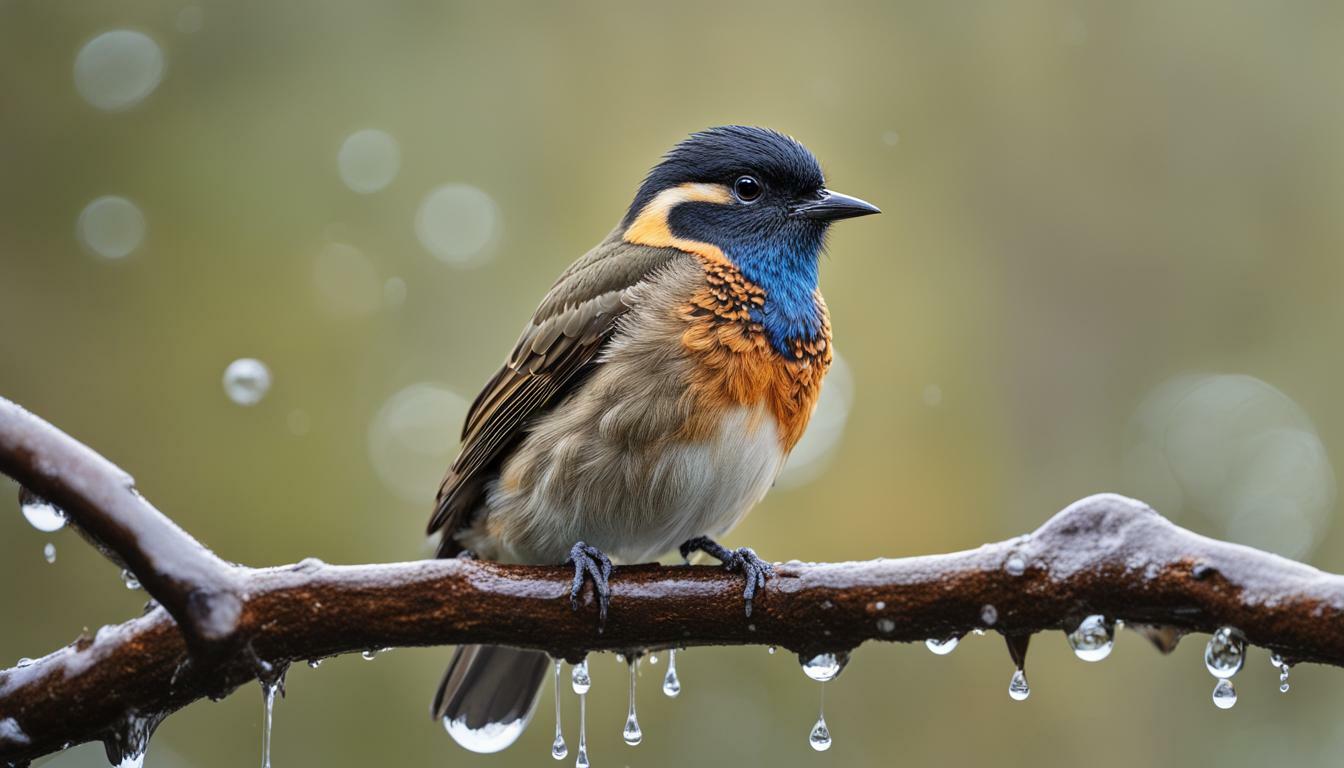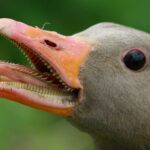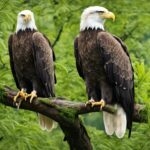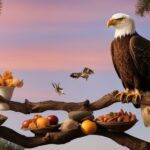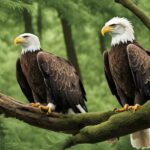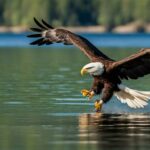Have you ever wondered how birds eliminate waste? One of the questions that often comes up is whether birds pee. The answer may surprise you. In this section, we’ll explore the fascinating world of bird urination and provide you with all the interesting facts and insights on this matter. Get ready to learn something new about these amazing creatures.
Key Takeaways:
- Birds do have a form of urination called avian urine.
- Birds have a unique urinary system and excretion process.
- Understanding bird bathroom habits can lead to a deeper appreciation of these fascinating creatures.
Understanding Bird Urinary System and Excretion
Before answering the question, “Do birds pee?” it’s important to understand how birds eliminate waste. Unlike mammals, birds don’t have a separate opening for urine and feces.
Bird excretion occurs through a single opening called the cloaca. The cloaca is the endpoint where the digestive, reproductive, and urinary tracts converge. Birds excrete waste products, including urine and feces, through the same opening.
The avian urinary system is different from mammals due to the absence of a bladder. Birds eliminate urine directly from their kidneys to the cloaca, where it mixes with feces, forming a paste-like substance called a dropping.
Avian Urine
Bird urine differs from mammalian urine as it contains a higher concentration of uric acid and less water. The uric acid helps birds conserve water, making it easier for them to survive in arid environments. Additionally, uric acid requires less energy to produce compared to urea, the byproduct found in mammalian urine.
Bird urine appears as a white, pasty substance and is usually found in small amounts, since most of the waste products exit through their feces.
Bird Bathroom Habits
Birds excrete waste products more frequently than mammals. Small birds may excrete every 10-15 minutes, while larger birds may do so every hour or so. Bird bathroom habits can also vary depending on their environment and species. For example, seabirds that spend most of their lives flying over the ocean may excrete while in flight, while others may wait until they perch on a tree or a rock to eliminate waste.
Birds also have a unique way of defecating, where they lift their tails and lean forward to eliminate waste, avoiding soiling themselves with their own excreta.
In conclusion, understanding bird bathroom habits, excretion, and the avian urinary system can help answer the question, “Do birds pee?” While birds don’t pee in the traditional sense, they do excrete a form of urine called avian urine through the same opening as their feces. The incredible adaptability and diversity of nature never cease to amaze.
Bird Pee: A Closer Look at Avian Urine
When we think of pee or urine, we often picture a yellowish liquid. However, bird pee, also known as avian urine, is quite different. Avian urine is a white, pasty substance that contains uric acid instead of urea.
Why is this important? Well, uric acid requires less water to be excreted, which is crucial for birds that need to be light for flight. By eliminating waste in a concentrated paste instead of a liquid, birds can save water and reduce weight.
In addition to uric acid, bird pee contains other waste products, including salts, amino acids, and other organic compounds. This mixture of waste products gives avian urine a strong odor, similar to ammonia.
While we often think of pee as being excreted through the urethra, birds eliminate urine and feces together through an opening called the cloaca. This ensures that waste is efficiently removed from the body.
Interestingly, some bird species have evolved unique ways of eliminating waste. For example, the emperor penguin expels its excess salt through its beak, and some seabirds excrete waste in a projectile stream to avoid soiling their feathers.
In conclusion, bird pee, or avian urine, is a unique substance that plays a crucial role in the waste elimination process for birds. By understanding the composition and functions of bird pee, we can gain a deeper appreciation for the intricacies of avian biology and the adaptations that allow birds to thrive in their environments.
How Birds Eliminate Waste: Beyond Pee
While avian urine is an important part of the waste elimination process for birds, it is not the only method in which they excrete waste. In fact, birds have a variety of ways in which they eliminate waste products from their bodies.
One of the most common ways that birds excrete waste is through their feces. Bird feces, or droppings, are comprised of solid and liquid waste products. The solid part consists of undigested food material, while the liquid part is a combination of urine and other excretory fluids.
Beyond feces, birds also have specialized glands that produce other waste products. For example, birds have salt glands that are used to excrete excess salt from their bodies. This is especially important for marine birds that consume large quantities of saltwater.
Additionally, some birds have specialized glands that produce oils that are used for grooming, waterproofing feathers, and even repelling predators. These oils are typically excreted from the bird’s preen gland, located at the base of their tail feathers.
How Birds Excrete Waste
The methods in which birds eliminate waste can vary depending on the species and their environment. Some birds, such as chickens and other domestic fowl, excrete waste in a communal area or through a specific opening in their enclosure. Other birds, such as raptors and songbirds, excrete waste while perched on a branch or in flight.
Birds have a unique ability to excrete waste from their bodies quickly and efficiently. This is due in part to their high metabolic rate, which allows them to process and eliminate waste products faster than most other animals.
Bird Waste Products and Their Impact
While bird waste products may seem like a nuisance, they actually play an important role in the environment. Bird feces, for example, can be a valuable source of nutrients for plants and other organisms. Additionally, the oils produced by some birds can help protect their feathers and skin from the sun and other environmental factors.
However, bird waste can also have negative impacts on human health and infrastructure. For example, large quantities of bird droppings can damage buildings and vehicles, and certain species of birds can transmit diseases through their waste products.
Overall, understanding how birds eliminate waste and the variety of waste products they produce can help us better appreciate these fascinating creatures and their role in the environment.
A Glimpse into Bird Bathroom Habits
When it comes to bird excretion, their bathroom habits are quite different from mammals. While mammals have a separate opening for waste elimination, birds use a common opening, known as the cloaca, for both excretion and reproduction.
This may seem strange to us humans, but it’s a highly efficient system for birds. In fact, birds can eliminate their waste in just one motion, and in some cases, while flying.
Another interesting fact about bird bathroom habits is that not all species of birds perch to eliminate waste. Some birds, such as flamingos and ducks, prefer to eliminate waste while standing in water. This helps to reduce the spread of bacteria and keeps their environment clean.
Birds also have the ability to control their excretory muscles, allowing them to hold their waste until they find a suitable location to eliminate. This is especially important for migratory birds, who rely on specific locations for their winter and summer habitats and need to maintain the cleanliness of those areas.
Overall, bird bathroom habits offer a fascinating glimpse into the unique world of avian biology. Their efficient waste elimination system, diverse excretion methods, and ability to control their excretory muscles are all remarkable adaptations that allow them to thrive in their environment.
Unraveling Bird Urination: Fascinating Trivia
Did you know that the amount of urine a bird produces is directly proportional to the amount of water it drinks? This means that when birds drink more water, they produce more urine. In fact, some birds can produce up to 50% of their body weight in urine per day!
Bird urine is also highly concentrated, which helps them conserve water. Unlike mammals, birds do not have a bladder to store urine. Instead, their kidneys produce a concentrated liquid waste that is excreted through the cloaca, a multi-purpose opening for excretion and reproduction.
In addition to avian urine, birds also eliminate waste through other means. For example, some birds, such as raptors, regurgitate pellets of undigested material, including bones and fur. Others, such as seabirds, excrete a combination of salt, water, and waste in a concentrated liquid called “guano.” This can have a significant impact on the environment, as guano can be a rich source of nutrients for plants and animals.
Interestingly, the acidity of bird urine can vary depending on the species and their diet. For example, birds that consume a lot of insects tend to have more alkaline urine, while those that eat mostly seeds have more acidic urine. This can have implications for the ecosystems where these birds live, as urine can affect soil and water quality.
Finally, it’s worth noting that some birds, such as ostriches and penguins, have evolved unique bathroom habits to cope with their environments. Ostriches, for example, defecate in the same spot to create mounds of waste that help regulate their body temperature. Penguins, on the other hand, have been observed “propelling” their feces away from their nests to prevent the spread of harmful bacteria.
All of these fascinating facts about bird urination and waste elimination highlight the incredible diversity of nature’s creations. By understanding more about how birds excrete waste, we can gain a deeper appreciation for the complex and ingenious ways that organisms have evolved to survive and thrive.
Conclusion
Congratulations, you have now expanded your knowledge on the fascinating topic of bird waste elimination! Through our exploration of bird bathroom habits, avian urine, and other waste products, you have gained a deeper understanding of the unique ways in which birds excrete waste.
It is clear that while birds do not pee in the same way as mammals, they still have a form of urination called avian urine. Additionally, we have learned that there are many other aspects to the waste elimination process for birds. From the various methods they use to excrete waste products to their specific bathroom habits, birds always provide us with new and interesting insights into the natural world.
We hope that this article has left you with a newfound appreciation for the incredible diversity of bird anatomy and biology. Whether you’re a bird enthusiast or simply curious about the natural world, this information is sure to spark your interest and expand your understanding of the world around us.
Do Birds Recognize the People Who Feed Them?
Birds’ understanding of their feeders is a fascinating subject of study. Many researchers believe that birds develop a level of recognition towards the people who provide them with food regularly. These feathered creatures are known to display behaviors like approaching, following or chirping in response to their feeders. It seems that through observation and memory, birds can recognize and appreciate the individuals who supply their sustenance.
FAQ
Q: Do birds pee?
A: Yes, birds do have a form of urination called avian urine.
Q: How do birds eliminate waste?
A: Birds eliminate waste through a variety of methods, including urination, defecation, and regurgitation.
Q: What is avian urine?
A: Avian urine is the waste product that birds excrete through their urinary system.
Q: Is bird pee similar to mammal pee?
A: No, bird urine has a different composition and functions compared to mammal urine.
Q: What are some other methods birds use to eliminate waste?
A: In addition to urination, birds eliminate waste through defecation, regurgitation, and other excretory mechanisms.
Q: Are bird bathroom habits different from mammals?
A: Yes, birds have unique bathroom habits that differ from those of mammals.
Q: Are there any interesting facts about bird urination?
A: Yes, bird urination has various intriguing aspects, including the amount of urine birds produce and its potential effects on their environment.

